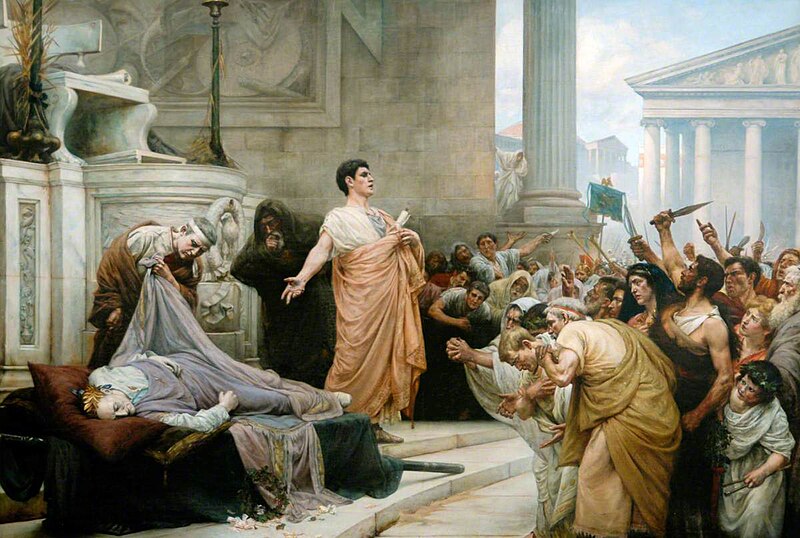Language
Why Not?
From a letter from English scholar Walter Raleigh to Mrs. F. Gotch, July 2, 1898:
Doe you lyke my newe phansy in the matere of Spelynge? I have growen wery of Spelynge wordes allwaies in one waye and now affecte diversite. The cheif vertew of my reform is that it makes the spelynge express the moode of the wryter. Frinsns, if yew fealin frenly, ye kin spel frenly-like. Butte if yew wyshe to indicate that thogh nott of hyghe bloode, yew are compleately atte one wyth the aristokrasy you canne double alle youre consonnantts, prollonge mosstte of yourre vowelles, and addde a fynalle ‘e’ wherevverre itte iss reququirred.
A later poem:
Wishes of an Elderly Man, Wished at a Garden Party, June 1914
I wish I loved the Human Race;
I wish I loved its silly face;
I wish I liked the way it walks;
I wish I liked the way it talks;
And when I’m introduced to one
I wish I thought What Jolly Fun!
Hard of Hearing
In 1979 Auberon Waugh was working as a columnist at Private Eye when his editor offered him a trip to Senegal to help celebrate the anniversary of the magazine’s sister publication. “All I would have to give in exchange was a short discourse in the French language on the subject of breast feeding.”
The assignment struck Waugh as strange but not unaccountable — he’d been writing a regular column in a medical magazine that had touched on that topic.
“So I composed a speech on this subject in French, with considerable labour, only to find when I landed in Dakar that the subject chosen was not breast-feeding but press freedom.” He’d misheard the editor.
“There was no way even to describe the misunderstanding, since la liberté de la Presse bears no resemblance to le nourrisson naturel des bébés.”
(From Waugh’s 1991 autobiography Will This Do?)
Misc

- To burn up is to burn down.
- Litotes is an anagram of T.S. Eliot.
- 1012658227848 × 8 = 8101265822784
- Three U.S. presidents died on July 4.
- “Grasp the subject, the words will follow.” — Cato the Elder
In a Word
pluvial
adj. relating to rainfall
A little tap at the window, as though some missile had struck it, followed by a plentiful, falling sound, as light, though, as if a shower of sand were being sprinkled from a window overhead; then the fall spread, took on an order, a rhythm, became liquid, loud, drumming, musical, innumerable, universal. It was the rain.
— Proust, Swann’s Way
Ironically Apt

In 2013, Japanese refrigeration company Fukushima Industries introduced a new mascot, a happy winged egg:
“I fly around on my awesome wings, patrolling supermarket showcases and kitchen refrigerators. I can talk to vegetables, fruit, meat, and fish and can check on their health! I was born in a Fukushima refrigerator! I love eating and I’m full of curiosity. I think of myself as kind, with a strong sense of justice, but my friends say I’m a bit of a klutz. But I’m always working hard to make myself shine!”
Unfortunately the company named the character “Fukuppy,” a combination of Fukushima and the English word happy.
After the name began to make news in English-speaking countries, Fukushima issued an apology and withdrew it.
Catastrophe
In Seven Types of Ambiguity (1949), William Empson describes a particularly inscrutable English newspaper headline:
ITALIAN ASSASSIN BOMB PLOT DISASTER
Bomb and plot, you notice, can be either nouns or verbs, and would take kindly to being adjectives, not that they are anything so definite here. One thinks at first that there are two words or sentences, and a semicolon has been left out as in telegrams: ‘I will tell you for your penny about the Italian Assassin and the well-known Bomb Plot Disaster’; but the assassin, as far as I remember, was actually not an Italian; Italian refers to the whole aggregate, and its noun, if any, is disaster. Perhaps, by being so far separated from its noun, it gives the impression that the other words, too, are somehow connected with Italy; that bombs, plots, and disasters belong both to government and rebel in those parts; perhaps Italian Assassin is not wholly separate in one’s mind from the injured Mussolini.
In fact it’s not clear what the intended meaning had been. Empson says that the main rhythm conveys the sense “This is a particularly exciting sort of disaster, the assassin-bomb-plot type they have in Italy.” In The Wordsworth Book of Usage & Abusage (1995), Eric Partridge suggests that the writer may have meant ITALIAN DISASTER ASSASSIN’S BOMB-PLOT, “There has been in Italy a disaster caused by a bomb in an assassin’s plot.” But he agrees that “even after an exasperating amount of cogitation by the reader,” the meaning is unclear.
Tense Trouble

Sydney is 14 hours ahead of New York, so when it’s noon in Sydney it’s 10 p.m. the previous day in New York.
Suppose you were broadcasting to the U.S. on a news-service hook-up from Sydney, and wanted to tell the American public about an explosion that occurred at 2:30 A.M. in a factory in Sydney.
Would you say ‘There will be an explosion in the Sydney Boiler Works at 2:30 A.M. tomorrow morning?’
Or would you say ‘There was an explosion in the Sydney Boiler Works at 2:30 A.M. tomorrow morning?’
That’s from Gerald Lynton Kaufman’s It’s About Time, from 1935. For the record, the Associated Press would dateline the story SYDNEY and refer to clock times in that location.
To the Point
In What a Word!, his 1936 examination of English usage, A.P. Herbert takes up a letter written in “officese”:
Madam,
We are in receipt of your favour of the 9th inst. with regard to the estimate required for the removal of your furniture and effects from the above address to Burbleton, and will arrange for a Representative to call to make an inspection on Tuesday next, the 14th inst., before 12 noon, which we trust will be convenient, after which our quotation will at once issue.
He reduces this to:
Madam,
We have your letter of May 9th requesting an estimate for the removal of your furniture and effects to Burbleton, and a man will call to see them next Tuesday forenoon if convenient, after which we will send the estimate without delay.
This shortens the letter from 66 words to 42. Then he cuts it again, to 35 words, or 157 letters against the original 294, a savings of nearly 50 percent:
Madam,
Thank you for your letter of May 9th. A man will call next Tuesday, forenoon, to see your furniture and effects, after which, without delay, we will send our estimate for their removal to Burbleton.
In a large firm, he estimates, cutting “verbose and indolent, obscure, inelegant, and time-devouring monkey-talk” could save a week’s work for two typists.
Elsewhere he considers a memo that reads “Hot-Water Bottles: With reference to the above matter I should like an opportunity of discussing same with you.” The improvement he suggests is “Could we, please, have a talk about Hot-Water Bottles?”
Pithy

Mark Antony’s funeral oration rendered in Scrabble tiles, by Pete Stickland:
COUNTRYMEN, I AM TO BURY, NOT EULOGIZE, CAESAR; IF EVIL LIVES ON, BEQUEATHING INJURY, GOOD OFT EXPIRES: A PALSIED, AWKWARD DEATH!
The tiles can also spell:
QUEASY RADIOMAN WEPT: GOT TO EYE FEROCIOUS BLAZE OF VIVID AERIAL EXPLOSION, CREMATING WILTED HINDENBURG AT LAKEHURST, N.J.
